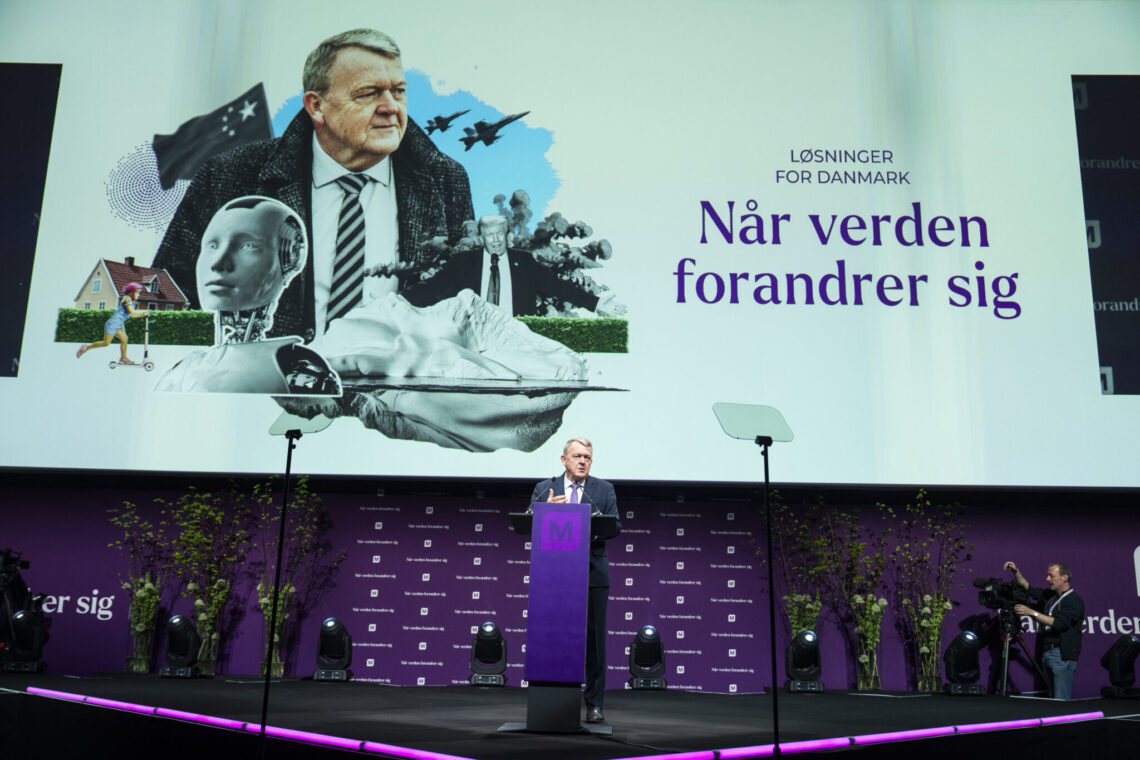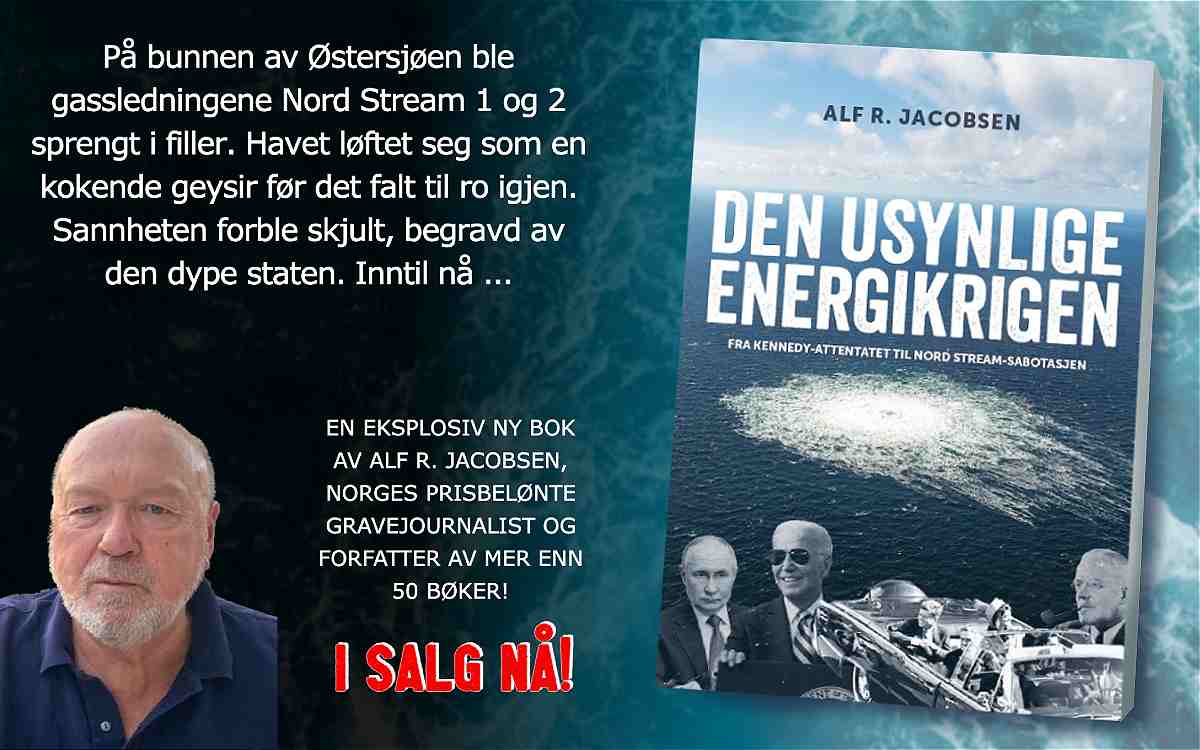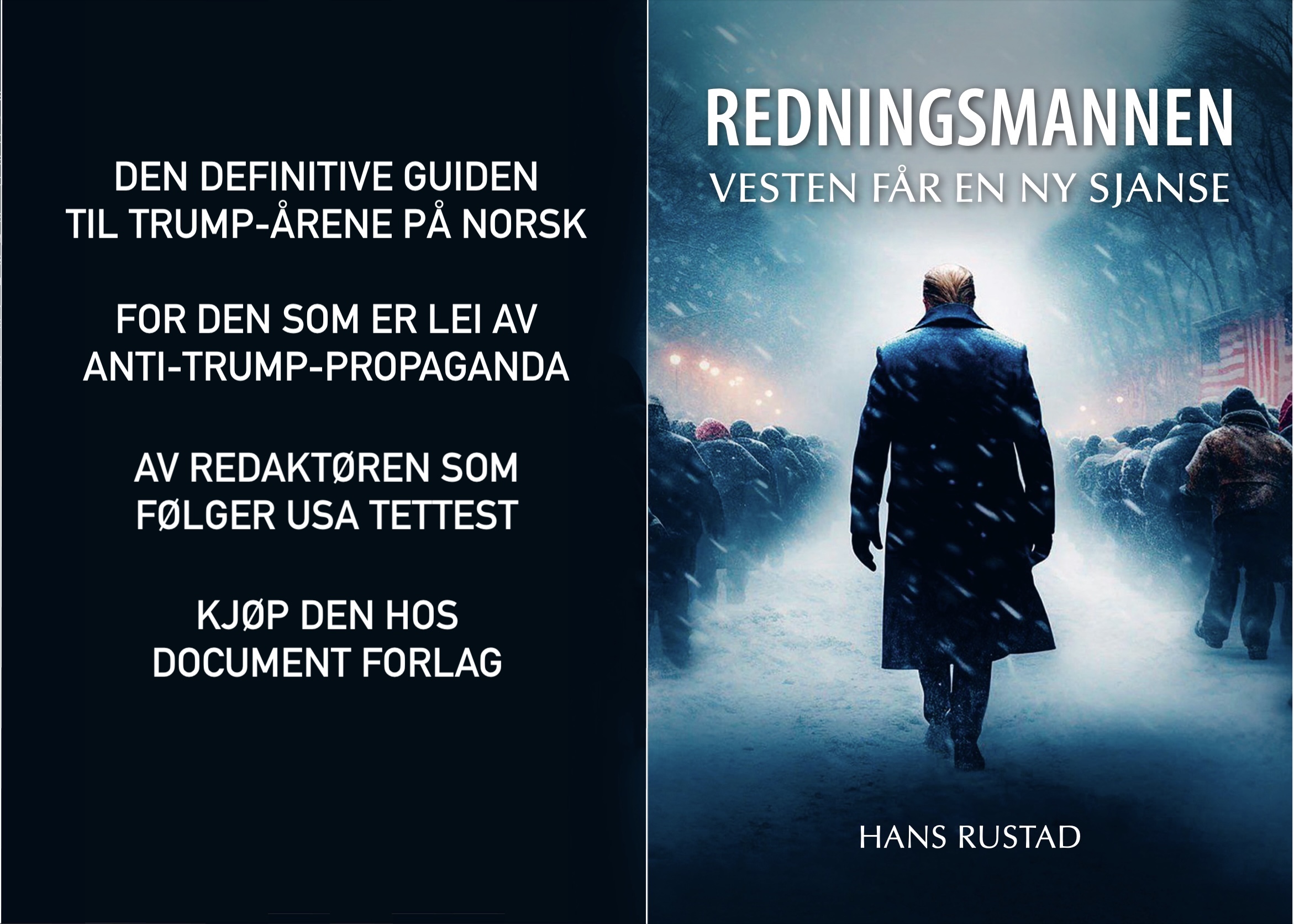Money is becoming increasingly scarce in the EU, and last week South Africa received DKK 30 billion. The money is intended to kick-start the green transition in the southern latitudes and inspire other countries to contribute so that South Africans can install more wind turbines on the world’s oceans. Shortly before, the EU donated DKK 30 million to politically correct NGOs to combat Islamophobia and so-called hate speech in the European public sphere through activities in Brussels and Dublin.
This week, Denmark’s Foreign Minister Lars Løkke Rasmussen handed over DKK 600 million to the new Sharia regime in Syria at a donors’ conference, also in Brussels, where the EU transferred a total of EUR 2.5 billion to these noble jihadists dressed up in suits.
This is just a sample of the latest donations from Europe’s political leaders. The generosity exudes apparent abundance, but is a sign of a culture in spiritual decline and a civilisation out of touch with reality.
It’s abnormal to give away fortunes just because you can. But the abnormal has become the normal, especially in stratospheric organisations like the EU. Here, the culture of pity has triumphed. Or in other words: The EU’s generous rain of gifts is rather an expression of imperial self-understanding disguised as pity, i.e. an ideological escapade, or escape.
An escape from what, one might ask. An escape from nature as the foundation of civilisation. A flight towards a decadent alternative, constructed in a supranational, over-satisfied, over-excited union that strives to realise a United States of Europe in a continuous denial of the continent’s roots and all shame and contempt for the taxpayers who have contributed funds that are now being given away as figments of the imagination. It is “most unnatural”, as the ghost says to Hamlet, who demands revenge in Shakespeare’s play about the Danish prince and the murder of his father.
From being negatively charged, decadence has become a political ideology that progressive elites have revitalised after the fall of the Berlin Wall and the dissolution of the Soviet Union. While communism has long since disappeared, decadence has become the gold standard in Western European capitals year after year: The more we waste, the bigger we get. The bigger the donations, the more profit. The more wealth we squander, the greater our self-esteem.
Decadent is actually a mild word for the Union’s self-perception and behaviour. For its behaviour threatens the normality of public life and perverts Europeans’ sense of patriotic virtue. In other words, the Union widens the gap between local civic virtue and imperial corruption, creating what historians of ideas will one day call a classic Machiavellian moment requiring political restoration.
When the abnormal becomes the new normal, reality becomes distorted. In a new and crystal clear book by Swedish ethnologist Karl-Olov Arnstberg, Ordet är fritt – ett försök att diskutera svåra samhällsfrågor (Karneval Förlag), he explains this distortion as pathological altruism. Pathological altruism is characterised, for example, by striving to maximise “global welfare” rather than national welfare, by English politicians being more interested in conditions in Burundi than in Birmingham, or by Swedes thinking all sorts of strange things about Sudan while everything is going well in Södertälje. Arnstberg explains this pathological altruism with a reference to Charles Dickens’s 1853 novel “Bleak House”, where we meet a character, Mrs Jellyby, “whose beautiful eyes had a curious habit of looking only far; it was as if she could see nothing nearer than Africa”.
The EU isn’t run by one Mrs Jellyby, but by many of her kind. Telescopic philanthropists, better known as globalists, who don’t see or understand their fellow countrymen, not their neighbours, not even their own family. The globalists are the new kings and queens, elevated above the people, with a view to the other world. They don’t have eyes and ears for the immediate, current and acute; they have telescopes and zoom lenses. Their grey, dull and familiar life world has been replaced by an exotic system world.
Faroffistan humanists believe in neither national identity nor state sovereignty, which they work to replace with broader transnational identities, institutions, rules and commissions, while ensuring that no one can hold them politically accountable for their ideological decadence. They don’t care about the common good of the nation; they feel called to something greater. Therefore, they don’t understand how half a century of mass immigration will affect the future of their own children in Europe, and that their own societies are moving towards increasing segregation, violence and internal conflict. Or they realise this, but selfishly choose to ignore it because they still have their own lives and careers to consider.
For pathological altruists, the world is simple, despite everyone else being able to see and realise that it is hugely complicated, full of problems, dilemmas and discomforts – both social, religious, ethnic, national, and regional ones – from here to Timbuktu. And even crazier: They believe the world can be moulded in their image. The clubs are working on it: The Bilderberg Group, World Economic Forum, Open Society Foundations, Soros Fund Management, etc. It’s Hollywood on speed and Coca-Cola capitalism.
But pathological altruists are child philosophers. They believe in the good in people, but at the same time show that they must know very little about people if they dare to be so programmatic. Real things like people are not simple. They may look simple, but appearances are deceptive. If you really want to understand people, you have to be prepared for them to be hard to read, hard to understand and hard to predict. This anthropological humility is a far cry from pathological altruists.
Some would argue that altruists love more because they love humanity. The British writer C.K. Chesterton would reply that he who claims to love everyone really loves no one. Just like the cosmopolitan who claims to live here, there and everywhere has no home anywhere. The notion of rising above the local, the historical and the random, i.e. life in a concrete sense, has something non-human about it.
Decadence would be harmless if the phenomenon were limited to a few – rich people, poets, artists, drug addicts. But when the spirit of the age rewrites decadence as goodness, takes hold of those in power and becomes a political ideology, it takes on a completely new, different and subversive effect, turning decadence into degeneration.
Buy Hans Rustad’s book about Trump here! You can buy the e-book here.



